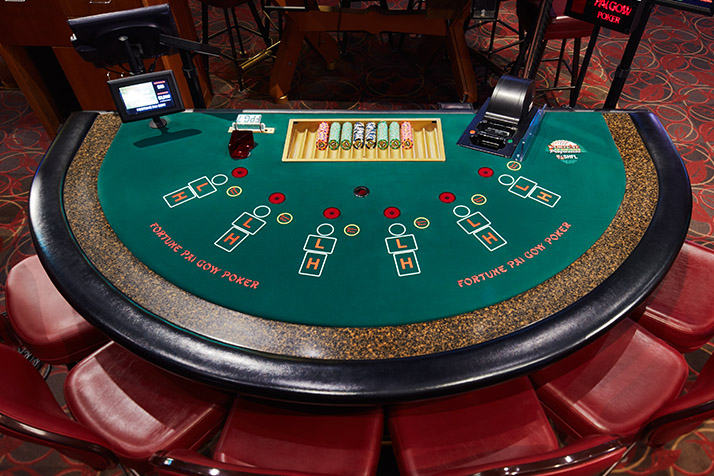
Poker is a card game played between two or more players and is primarily a game of chance and skill. It can be a fun and social game, but to be successful in poker it takes discipline and perseverance. It also requires good money management skills to be able to play in games that are profitable for your bankroll. Developing good poker strategy involves playing smart, understanding game variations and limits, and observing other players for “tells,” which are nervous body language and betting patterns that indicate how strong or weak a player’s hands are.
During the course of a hand, players place bets to put chips into the pot and encourage competition. The player who puts in the most chips wins the pot. A player may choose to check, which is passing on betting, or raise – bet more than the previous player’s raised amount. Once all players are done putting in their bets, the dealer announces which hand is highest and pushes the pot of chips to the winner. This is done in a clockwise fashion, and it’s important to be familiar with how this is conducted at your table.
A basic poker hand consists of five cards of varying rank. These cards are grouped into different categories depending on the value of each card, with Aces being high and lower cards like Jacks and 10s being low. In addition, the cards are divided into suits, with hearts, diamonds and clubs being the four main suits. Some games also use jokers that can act as wild cards and take the rank of any card in a hand.
To win a poker hand, the player must have the highest rank and most cards in that category. The best hand will usually beat the other players’ hands, but you can also win by making a bet that no one else calls. This is known as raising and is a key part of winning poker hands.
If you are in EP, or first position, it is important to play very tight and only call with strong hands. This will help you to build a large pot. However, if you are MP or ON, you can play a little looser and open with stronger hands. It is very important to always have a reason for your moves at the table, whether you are checking, calling or raising. If you make a move without a reason, it is likely that your opponent will catch on to your bluff and call you.
You should also memorize some of the rules and charts for poker, such as knowing that a flush beats a straight, and three of a kind beats two pair. These are important to know for your own strategy, as well as to read the lips of other players at the table. This will give you a better understanding of their strategy and motivations. If they are trying to bluff, you’ll be more aware of it and can react accordingly.